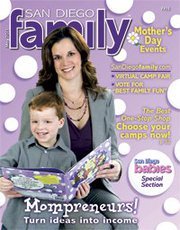How To Baby Proof Your House
Baby Proofing Suggestions
- Hanging cords from answering machines, telephones, lamps, blinds, and appliances are a strangulation hazard and should be kept out of reach of your child.
- Fingerguards for doors are great – they save kids fingers from being caught in the door – they also help with door slamming or a child getting locked into a room. They can be taken on and off in seconds.
- Cover all used or unused electric outlets that are accessible.
- Never leave a child unattended on a changing table.
- Do not use tacks or staples to secure electrical cords to walls.
- Unstable or large furniture and lamps should be removed, mounted to the wall or blocked off so that your child cannot tip them.
- Remove table with glass tops or inserts until children are older.
- Keep VCR’s out of reach of babies and young children. Keep a tape in the VCR to prevent little hands from getting inside. There are Lucite guards you can purchase to block the opening.
- Pet doors should be blocked off so your baby does not go through them.
- Tablecloths can be pulled down and everything on top can fall onto your child.
- Garages are not safe for children. Try to keep them out of them.
- Have all emergency numbers posted by the telephone for babysitters and any other caretakers. Have child�s birthdate and other important info available as well. Teach your child 911, their home area code, phone number, address and your work number.
- If possible, teach them a few phone numbers (close friend, neighbor or relative)
- Knives, tools, pencils and other sharp objects (this includes boxes with serrated edges like plastic wraps) should be locked away or out of reach.
- Wrap used razor blades/sharp objects in paper towel before disposing of them.
- Keep plastic bags out of children’s reach.
- Keep walkways and stairwells clear of objects, cords or rugs that could cause tripping.
- No containers of water should be left accessible to young children (this includes the potty; all toilets should be equipped with a potty lock).
- Remove two piece door stopper. The white piece on the tip can pose a potential choking hazard.
- Keep bedroom doors closed while sleeping.
- If children sleep in another room, use a monitor to listen for them.
- If you have a garbage disposal, use a switch blocker to prevent a child from turning it on.
- Keep wastebaskets covered with childproof lids or put them out of reach.
- Use safety gates to keep children out of the kitchen while cooking.
- Do not use the microwave to heat baby formula.
- Place hot foods in the center of the table to prevent children from pulling them off onto themselves.
- Never carry your child and hot items at the same time.
- When cooking, all pot handles should be turned in so your baby does not reach up and pull them. If possible, use back burners.
- Keep small objects like coins, small doll shoes, marbles and paper clips picked up and out of sight. You can purchase a tubular object that allows you to see whether or not an item is small enough to be chokeable.
- Never give a balloon to a child under three. There have been numerous cases of children choking on balloons.
- Before bathing your baby, gather all the items you will need and place them within your reach so you are not tempted to leave the child and retrieve something. If you forget something, take your child with you to get it, even if he/she is dripping wet. NEVER LEAVE A BABY UNATTENDED DURING BATH TIME. Always check the water temperature prior to setting the child in the tub.
- Never leave your child alone in wading or swimming pool, pail of water, toilet of any other body of water.
- Wall hangings should never be put over the crib. If your child pulls it down, nails or glass could fall into the crib.
- Mobiles should be removed when your child is 5-7 months. Do not hang toys in the crib. Babies can get tangled.
- Cribs should have no knobs or posts that stick up more than a half inch. Babies may catch their clothes on knobs and choke.
- Try not to use older cribs that have been repainted. Many of the older paints contained lead, which can cause serious nerve and brain damage. The paint on these items can be tested with a lead test kit.
- Locate the crib away from windows. Breaking glass and hanging cords from window dressings are dangerous to infants.
- Keep cribs away from electric outlets. Even if outlets are covered.
- Check often for loose nuts and bolts on cribs.
Leave a Comment



















